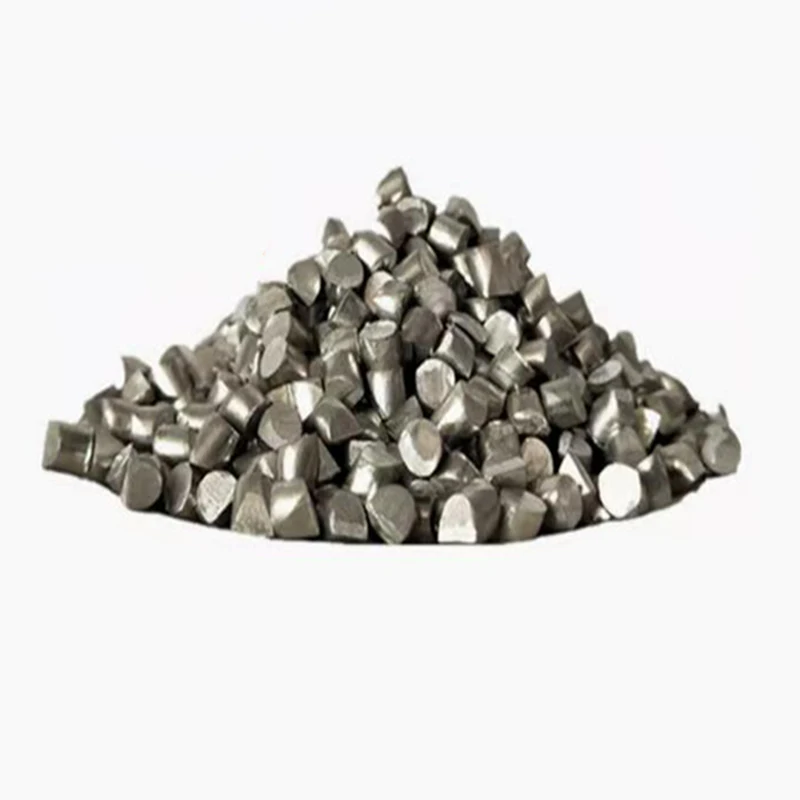Finest Practices for Upkeep and Applications in the Light Weight Aluminum Foundry Sector: A Thorough Overview
Maintaining equipment in the light weight aluminum factory industry is important for operational success. Regular examinations and predictive maintenance can substantially lower downtime and improve security. Advanced innovations, such as IoT and data analytics, play a crucial role in this process. Understanding the complete range of finest methods calls for a better assessment of specific approaches and their impacts on efficiency. What are the necessary elements that add to a dependable upkeep framework?
Value of Routine Maintenance in Light Weight Aluminum Foundries
Regular upkeep plays a vital duty in the efficient procedure of aluminum foundries. By systematically servicing and checking equipment, factories ensure peak efficiency and longevity of machinery. Normal maintenance tasks, such as lubrication, element, and cleansing substitute, help stop unexpected failures that can cause expensive downtime.
In addition, regular checks enhance work environment safety and security by identifying possible risks before they rise right into severe problems. Devices that is well-maintained operates more efficiently, resulting in enhanced item quality and minimized waste. In addition, adherence to a structured maintenance routine can support conformity with market guidelines, therefore promoting an online reputation for integrity and top quality within the marketplace.
Carrying Out Predictive Maintenance Techniques
Anticipating upkeep approaches take the principles of regular maintenance an action further by leveraging information analytics and progressed tracking modern technologies. In light weight aluminum factories, these methods allow operators to expect devices failings before they take place, consequently reducing unexpected downtimes and optimizing operational performance. By using sensors and IoT tools, real-time data can be collected on device performance, permitting the identification of potential concerns with predictive analytics.
Maximizing Melting and Pouring Procedures
Effective melting and pouring procedures are important for making the most of performance and ensuring the quality of light weight aluminum spreadings. To improve these processes, factories need to concentrate on accurate temperature control throughout melting, as this directly influences the metallurgical homes of the alloy. Using advanced melting modern technologies, such as induction and resistance melting, can boost energy efficiency and minimize cycle times.
Moreover, implementing automated pouring systems reduces human error and maintains consistency in the putting process. Appropriate mold prep work, including sufficient preheating, is necessary to stop thermal shock and improve mold longevity.

Enhancing Security Procedures in Shop Procedures
Focusing on safety in aluminum factory procedures is crucial for shielding workers and ensuring a productive Our site environment. Reliable safety methods include normal training sessions that stress the significance of personal safety equipment (PPE), such as goggles, handwear covers, and helmets. Furthermore, the facility of clear emergency treatments is vital in managing prospective crashes.
Regular inspections of devices and machinery aid recognize risks prior to they rise into severe issues. Carrying out a durable coverage system motivates workers to communicate security issues without worry of effect. Promoting a culture of safety and security warranties that every worker recognizes their duty in keeping a safe office.
Additionally, assuring appropriate ventilation and surveillance air quality can minimize exposure to hazardous fumes and dirt. By strengthening these methods, aluminum shops can greatly decrease the danger of accidents and produce an environment where workers feel valued and safe, ultimately boosting general functional effectiveness.
Leveraging Modern Technology for Improved Efficiency
Using sophisticated technology has ended up being progressively vital for light weight aluminum factories aiming to improve operational performance. Automation and robotics play an important duty in improving manufacturing procedures, decreasing labor expenses, and minimizing human error. Implementing real-time surveillance systems permits for the continual assessment of go to these guys devices efficiency, making it possible for positive upkeep and minimizing downtime.
Additionally, the combination of data analytics offers important understandings into functional process, facilitating far better decision-making and resource allocation. Anticipating analytics can determine potential failings prior to they take place, more maximizing upkeep routines.
Additionally, adopting sophisticated melting and spreading technologies enhances energy effectiveness and material return, which are essential for sustainability in the industry. By welcoming these technological innovations, aluminum shops can not only enhance productivity but additionally preserve a competitive side in a significantly demanding market (Aluminum Casting). Eventually, leveraging modern technology is crucial in driving technology and improving general operational efficiency within the field

Often Asked Inquiries
What Prevail Indicators of Equipment Put On in Light Weight Aluminum Foundries?
Usual signs of tools wear in aluminum foundries include uncommon noises, decreased efficiency, boosted vibration, overheating elements, leaks, and noticeable rust. These indicators often click here for info signify the need for maintenance or prospective substitute to avoid pricey downtime.
How Can I Train Team for Effective Upkeep Practices?
To train team for reliable upkeep methods, one can execute hands-on workshops, develop complete guidebooks, motivate mentorship programs, and perform normal analyses to assess skills and expertise, making certain all workers recognize maintenance methods extensively.
What Are the Ecological Rules for Light Weight Aluminum Foundries?
Aluminum factories go through various environmental regulations, including discharges control, waste management, and source preservation. Compliance assurances very little environmental impact, promoting sustainability while adhering to neighborhood, national, and global environmental requirements and policies.
Just How Do Foundries Manage Waste and Recycling of Aluminum?
Factories take care of waste and recycling by applying systems for collecting scrap aluminum, utilizing sophisticated separation modern technologies, and collaborating with reusing centers to guarantee reliable recovery processes, thereby minimizing ecological impact and advertising sustainability within the sector.
What Are the Expenses Linked With Applying Advanced Technologies?
Implementing sophisticated innovations in foundries sustains considerable costs, consisting of first investment, training, and upkeep expenditures. The long-lasting advantages, such as enhanced effectiveness and decreased waste, commonly justify these expenses, leading to boosted earnings. (aluminum metal casting)
